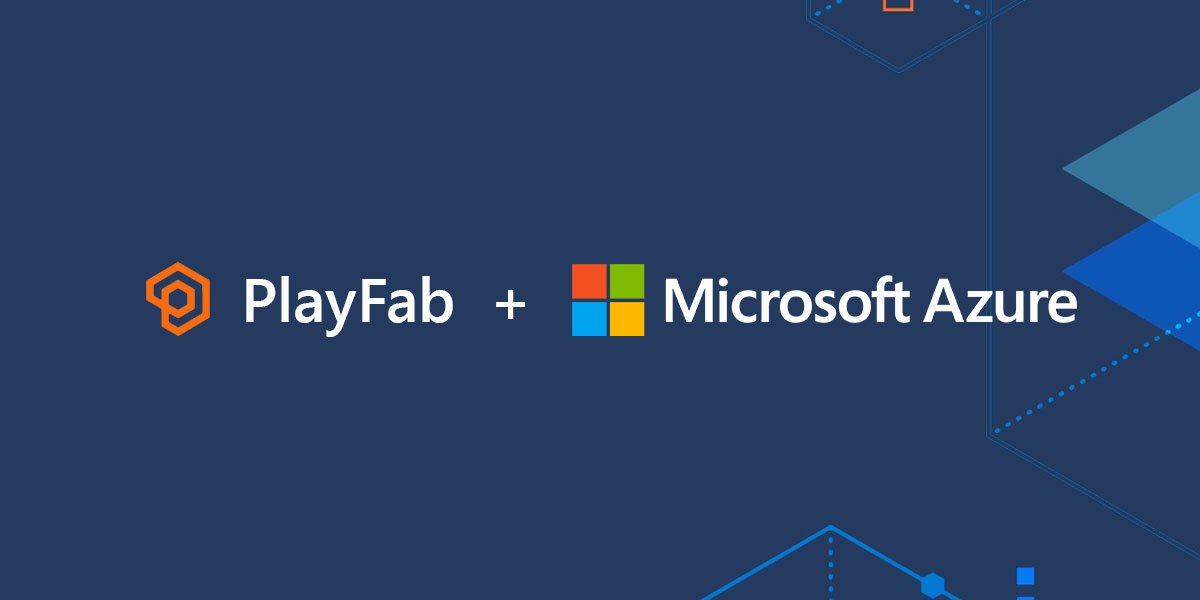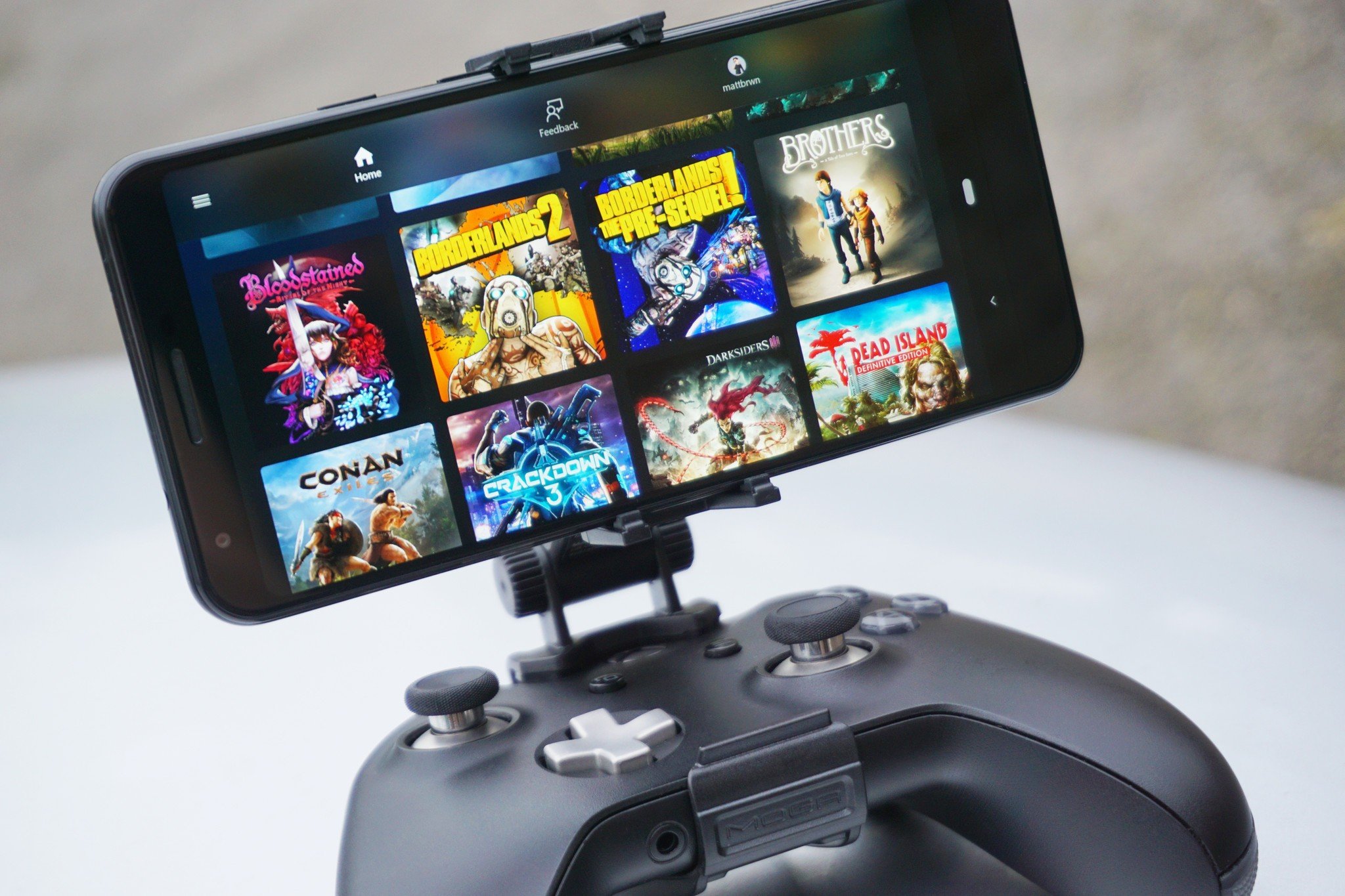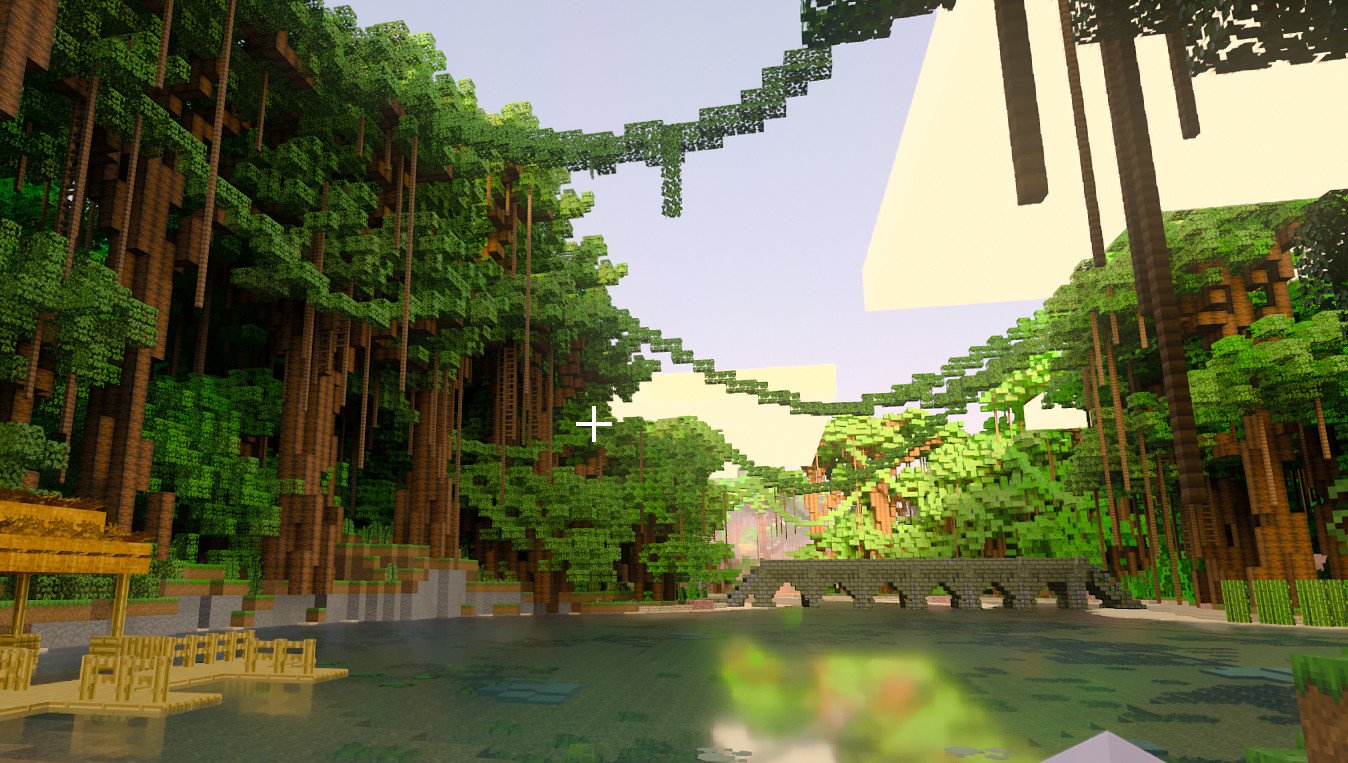One of Microsoft's biggest growth areas is services to game developers, led by its PlayFab suite.
Microsoft just posted some of its biggest quarterly earning results in recent memory, dominated by gains in its service and cloud sectors. With the pandemic, work-from-home culture, and online gaming have seen huge boosts. Naturally, Microsoft was well-placed from a business perspective to not only weather the storm but ride the waves.
Microsoft has enjoyed a spurt of growth with Xbox in recent quarters, buoyed by the pandemic and a new console generation launch. Other gaming companies have also seen huge amounts of engagement in their online services, increasing the damage for packages like Microsoft's PlayFab suite to manage their in-game communities.
We recently caught up with Microsoft's Gaming Cloud General Manager James Gwertzman to learn more about what Microsoft Azure and PlayFab bring to the industry for game developers and gamers themselves.
What is PlayFab?
 James Gwertzman, Gaming Vertical GM, Microsoft.
James Gwertzman, Gaming Vertical GM, Microsoft.
At its core, PlayFab is a suite of tools and services, similar to Microsoft Office, oriented around game development and online operations. If you're an Xbox gamer, you'll be familiar with things like Xbox Live party chat, messaging systems, DLC content management, in-game purchasing, online data and presence, and things of that nature. PlayFab offers these systems and tools to publishers like Ubisoft, EA, and others, to build into their own games and services. Some notable titles that use Azure and PlayFab include Rainbow Six Siege and No Man's Sky.
Gwertzman explained that Azure PlayFab sees 750 million identities per month across its services. PlayFab isn't just an Xbox and Windows suite of tools, either. You can use it to build titles that run on mobile, Nintendo Switch, PlayStation, and even Google Stadia, with true cross-platform compliance and analytics systems.
How is PlayFab helping developers?
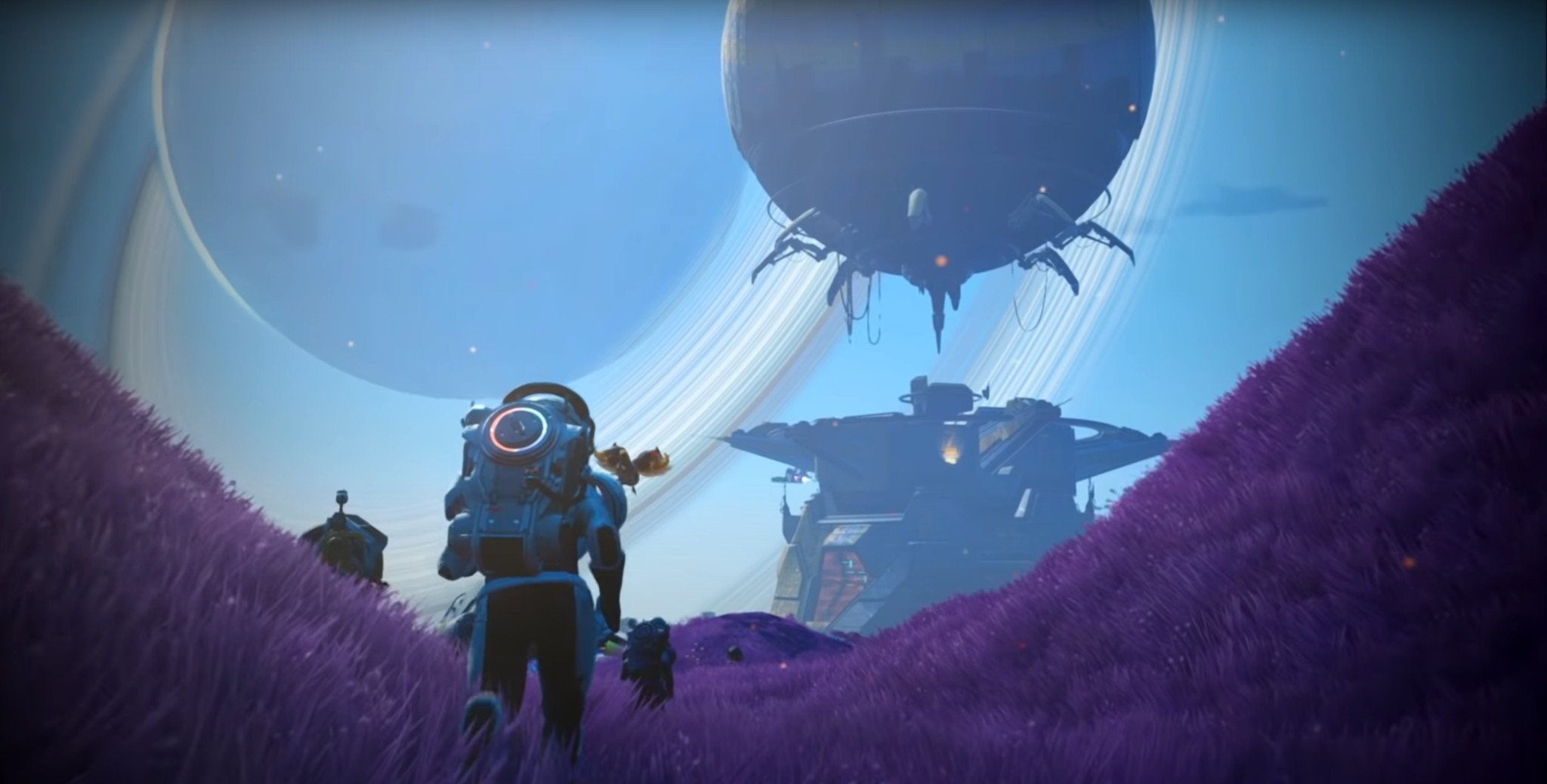 No Man's Sky uses PlayFab services to power its online experiences.
No Man's Sky uses PlayFab services to power its online experiences.
Beyond live ops, analytics, servers, matchmaking, and the obvious stuff, PlayFab is also helping ease the transition to remote working. The way we work and play has fundamentally changed as a result of the pandemic, it's easy to speculate how services like PlayFab might help ease developer pipelines that have been forced to shift to the cloud as a result of national lockdowns. This has presented challenges, of course, but Gwertzman notes that it may also present new opportunities with the right tools.
It might make certain types of collaboration harder if your tools aren't good enough. But on the other hand, [remote working] opens you up to tap into global talent — you know — the right talent for the job can come from anywhere nowadays, which I think is hugely empowering. When we talked about accelerating game production by moving your pipeline to the cloud — it's not just about taking advantage of cutting edge tools to do your work better.
Microsoft's home-built features, such as Project xCloud game streaming, Xbox Live, and beyond, have informed and, in some cases, been bundled into products that PlayFab can then disseminate to the general game development to elevate the industry as a whole.
Pixel streaming is a key component for moving your game production in the cloud. When you have all your code and all your assets in the cloud, then when you compile and build your game, you don't have to wait 10 minutes to download it to your desktop. You'll be able to push a button and instantly stream it.
PlayFab and Azure are able to provide raw servers for game developers who simply want to build their own tools, but Microsoft has an opportunity to take the burden off developers with its suite of services. It's particularly useful and cost-effective for independent developers who may not want to shoulder the load of maintaining and building their own tools for these sorts of things, freeing up capital to focus on creativity instead.
We really believe that going forward, as the trend of managed services gets more and more sophisticated, we'll start to see a shift with more developer saying, 'Look, I don't want to build my own services, I just want to focus on making fun games.' If the services being offered are world-class and meet my needs, then I'm going to be happily using those off the shelf and not have to go and reinvent a lot of technology just to launch my game. That really lets you focus on the fun.
What does the future of PlayFab look like?
PlayFab is adding sophistication and polish to its existing toolset, but to stay ahead of the game and react fast to a rapidly changing technological landscape, investing in cutting edge tech is undoubtedly on the agenda.
Gwertzman talked up how Microsoft builds tools for its own games, then moves them out of the siloes and into products that third-parties can adapt. He also noted now some of Microsoft's recent gaming products have helped inform future PlayFab opportunities.
Our first-party studios are doing some really cutting edge work, and we're very excited to take the learnings from them and find ways to share it back with the broader community. You know, I'll give an example. Flight Simulator is, in my mind, the absolute textbook case of a cloud-native game. Things like weather simulations in the cloud to provide actual clouds in the game. It's a completely photorealistic version of the whole world. And we did not model the 3D geometry for that by hand. It would have been impossibly expensive to model. We used machine learning algorithms on top of satellite imagery.
The process of mapping Flight Simulator and running those models to create geometry took only 72 hours or something because you're using thousands of servers to shoulder the computational load. That's an example of how powerful the cloud is becoming in terms of game production. We're very interested in adapting lessons from that to also help with with with with production.
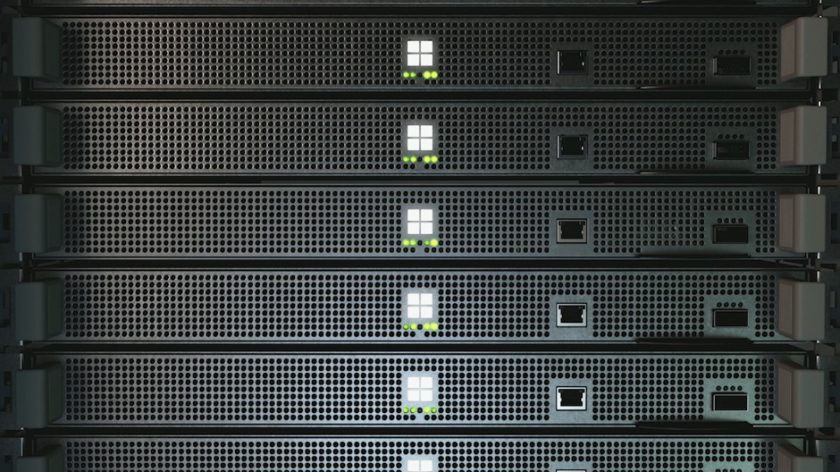 For many devs, Azure cloud servers can help speed up calculations thousands of times faster than local compute is capable of.
For many devs, Azure cloud servers can help speed up calculations thousands of times faster than local compute is capable of.
Gwertzman's comments highlight that Microsoft's acquisition of Zenimax and Bethesda could play a pivotal role in bringing PlayFab to the fore. It positions Microsoft as a competitor against engine vendors like Epic Games and Unity3D, as Microsoft will acquire the legendary id Tech engine through owning id Software. Wolfenstein, DOOM, and others were built recently using this engine. With PlayFab's investment, it's easy to imagine where the tech could be further adapted. Gwertzman was unable to comment on these possibilities, given the fact the acquisition is on-going and not yet finalized. Still, he did note that PlayFab's Chief Technology Officer Travis Bradshaw was formerly Lead Programmer at id Software, working on the id Tech engine. Also, it's worth noting that DOOM Eternal uses PlayFab for its online systems.
Beyond adapting cloud technology for rendering in games, Microsoft is also betting on machine learning and AI to solve and improve other aspects of online interactions.
One of the goals is to create effective communities for player-to-player interaction. It's not just multiplayer, and voice chat, and the ability to create user-generated content, and we'll continue to invest in that because it's our bread and butter. We also have a lot of investments in Xbox Live to keep the Xbox Live community safe, you know, through moderation and toxicity prevention. The safety of communities is a huge topic online. We're starting to look at where we can take some of those technologies from our Xbox Live investments and make them more broadly available across platforms. Even things like our matchmaking technology, we actually brought that over from Xbox. Previously, PlayFab did not have great matchmaking technology. I think we'll continue to look for opportunities to move existing investments and make them available more broadly.
The building blocks of play
Gaming went from essentially being interactive solo board games to a huge cultural movement in a few decades. No longer are games restricted to your cathode-ray TV set. We all have the opportunity to connect to massive scale connected worlds with players from all over the planet.
James Gwertzman notes that many developers have the ambition for their game to become a true community. We've seen it happen in recent years with games like World of Warcraft, Minecraft, and Fortnite. We've seen it even earlier in older MMOs, shooters, and beyond from the early days of the 'net.
I think games are starting to achieve a level of cultural significance that they've really never had before. The Marshmello concert in Fortnite, I think we're going to look back in history see that as a turning point. Millions of players tuned in to watch an EDM concert in a game. There's a level of significance here that we're going to look back on.
The gaming world has the potential to provide technology to bring people together again; I think we need that, as a country and across the whole world. We want to make it easier for games to do that, to help people find each other and play together and engage together.
We have now citizen creators, you know, eight-year-olds creating games on Roblox. I never expected that, you know, it's sort of like, TikTok is to Hollywood what Roblox is to gaming in the sense that you're making it possible for anyone to be a creator and take the creation and instantly make it available to everyone worldwide. Kids today are growing up expecting to be able to create, not just consume.
Many of the tools for game features we often take for granted have been made available to developers at a level of quality not seen before outside of the biggest players. Microsoft and the other big platform holders are bringing a fresh wave of interconnected creativity. We could see the next Fortnite, Roblox, or Minecraft emerge right around the corner, powered by PlayFab.
via https://AiUpNow.com January 29, 2021 at 12:01PM by Jez Corden, Khareem Sudlow,
